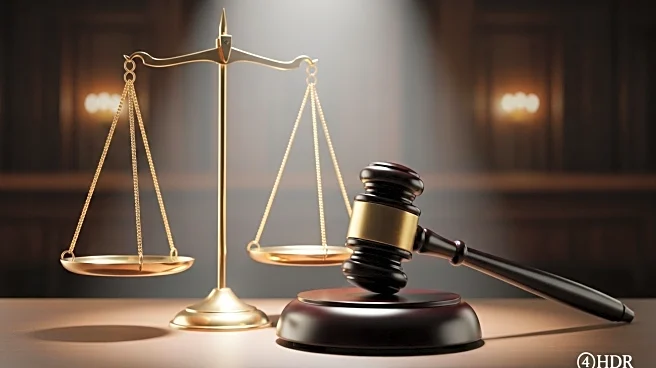What's Happening?
Former FBI Director James Comey is under scrutiny for potentially facing perjury charges related to alleged false statements made during a congressional testimony in 2020. The statements in question were made during Comey's testimony on September 30, 2020, concerning possible Russian interference in the 2016 presidential election. Federal prosecutors are currently deliberating whether to proceed with charges, as the legal deadline approaches. Although sufficient evidence has not yet been found to charge Comey, the U.S. Attorney in Virginia is reportedly planning to ask a grand jury to indict him. This development follows Comey's firing by President Trump over his handling of an investigation into former Secretary of State Hillary Clinton's use of personal email.
Why It's Important?
The potential indictment of James Comey is significant as it could impact perceptions of the integrity of the FBI and its leadership. Comey, who was appointed by former President Barack Obama, has been a vocal critic of President Trump since his dismissal. The case also highlights ongoing tensions between Trump and former officials from his administration. If charges are brought against Comey, it could further polarize political discourse and influence public trust in governmental institutions. The decision to indict could also affect the legal and political landscape, particularly in relation to investigations of past administrations.
What's Next?
Prosecutors have a limited timeframe to decide on whether to file charges, as criminal law generally allows only five years from the date of the alleged offense. The U.S. Attorney’s Office for the Eastern District of Virginia, led by Lindsey Halligan, is involved in the decision-making process. President Trump has publicly expressed his dissatisfaction with the pace of legal actions against Comey and other figures, urging for swift justice. The outcome of this case could have implications for future legal proceedings involving former government officials.









